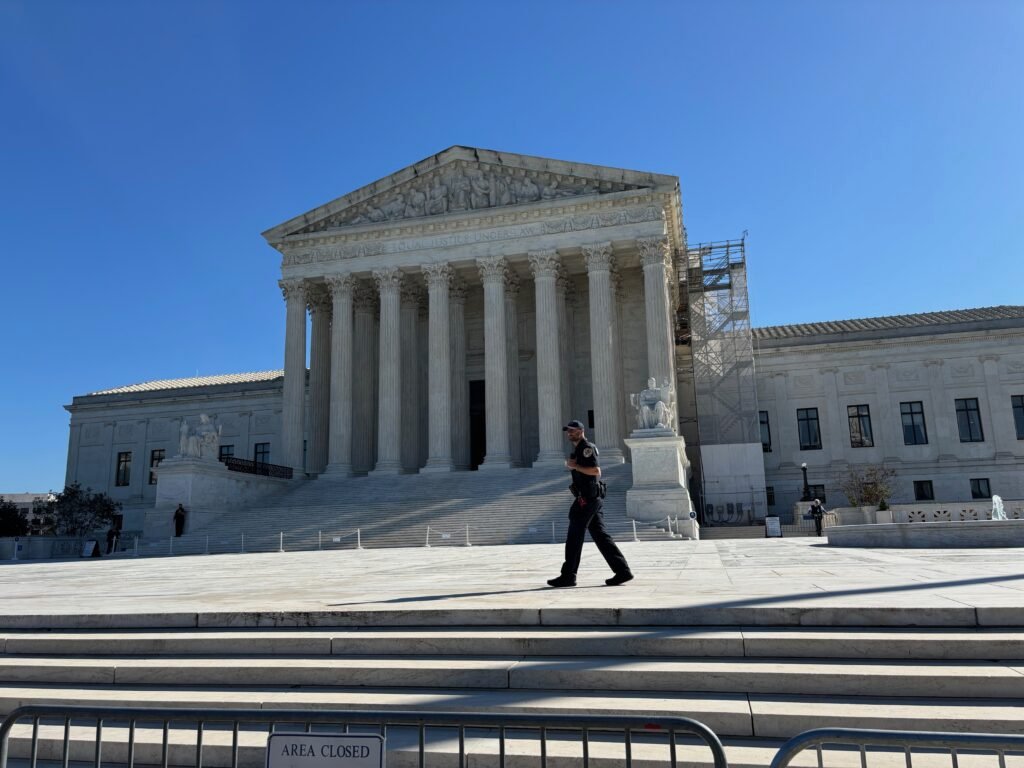Supreme Court Lifts Lower Court Ruling on NIH Grants
WASHINGTON – On Thursday, the Supreme Court overruled a decision from a lower court, enabling the Trump administration to cut hundreds of millions in funding at the National Institute of Health, which focuses on diversity, equity, and inclusion issues.
The ruling was close, with a 5-4 split. Chief Justice John Roberts, along with Justices Sonia Sotomayor, Elena Kagan, and Ketanji Brown Jackson, opposed the majority. This case arose after Attorney General D. John Sauer asked the Supreme Court to step in regarding a decision made in July. He argued that “the district court has no jurisdiction to order the government to pay a dismissal grant of around $783 million.”
Sauer drew parallels between this case and an earlier Supreme Court ruling that prevented the Department of Education from ending DEI-related grants. In that context, the Supreme Court indicated that such claims might belong to the Federal Court of Claims and that the district court lacked jurisdiction.
Sauer contended that the lower court in this NIH grant case had disregarded the Supreme Court’s earlier ruling. He stated, “The district court order tells the NIH to pay $783 million in federal grants that contradict the administration’s priorities. This court is stepping in to address a similar order, given that the lower court defied Supreme Court precedent.”
State Attorneys General Respond
A coalition of Democratic Attorneys General from several states, including Arizona and California, filed a response. They noted, “Federal applications often portray lower courts as disregarding established legal guidelines to obstruct standard agency actions. However, this narrative isn’t reflective of reality; it’s really a complete withdrawal.”
The Trump administration’s move to cancel the NIH grant was criticized for lacking a solid justification. “Since then, the directive has resulted in the cancellation of numerous research grants to state universities for projects on vital health issues such as heart disease, HIV/AIDS, and mental health,” they said.
The American Public Health Association also voiced its opposition to the administration’s attempts to persuade the Supreme Court to dismiss the lower court’s ruling. They emphasized the potential impacts on research progress and public health as a result of the lost funding.
Majority Opinion Highlights
Justices Clarence Thomas, Samuel Alito, Neil Gorsuch, and Brett Kavanaugh sided with the Trump administration, dismissing the lower court’s decision. Justice Amy Coney Barrett expressed agreement with this perspective.
Justice Gorsuch was critical of the district court, stating in his opinion, “While judges in lower courts might disagree with this court’s decisions, they can’t oppose them.” He highlighted that the stay was granted based on the likelihood of the government prevailing in terms of jurisdiction.
Barrett concurred, noting that there appears to be no jurisdiction for examining the termination of grants concerning the Federal Court of Claims. In her dissent, Justice Jackson argued that the federal district and claims courts had only limited time to decide on the jurisdiction regarding federal grant terminations.
Jackson expressed her concerns, labeling the court’s intervention as “an unfortunate aspect of this situation,” reflecting on how the decision had broader implications than initially realized.







